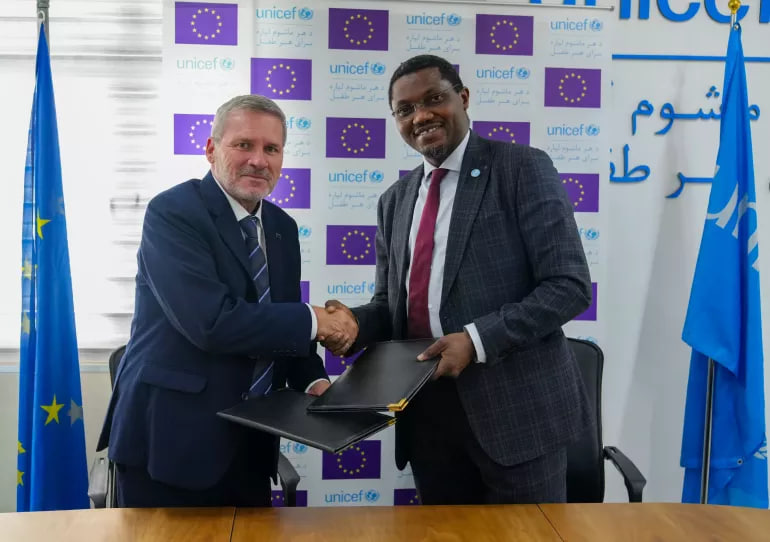KABUL – The European Union (EU) has pledged €10 million to UNICEF to assist Afghan children returning from neighboring countries, as Afghanistan faces one of the world’s most acute humanitarian crises.
The funding will launch Phase 3 of the Afghan Children on the Move initiative, bringing the EU’s total support since 2018 to €38 million. Over the next three years, the program is expected to reach more than 180,000 children and families with immediate border assistance and longer-term reintegration in 12 provinces.
Support will include family tracing, reunification, interim care, psychosocial help, and resilience-building for unaccompanied and separated children arriving at border points such as Islam Qala, Milak, Spin Boldak, and Torkham.
Longer-term efforts will expand access to education, health, nutrition, vocational training, and livelihood opportunities.
The announcement comes as returns from Pakistan and Iran surge, with more than 2 million Afghans, including half a million children, forced back this year alone.
Humanitarian groups say the influx has overwhelmed Afghanistan’s already fragile child protection systems.
The situation for children inside the country remains dire. Since the Taliban’s takeover in 2021, restrictions on education, particularly for girls, along with the collapse of social services have left millions without support.
Aid agencies estimate that more than 15 million Afghan children need humanitarian assistance in 2025, while one in three suffers from acute malnutrition.
Afghanistan continues to rank among the deadliest places for children, who face preventable diseases, limited vaccine access, rising child labor, and heightened risks of trafficking and exploitation, especially for unaccompanied minors returning from abroad.
